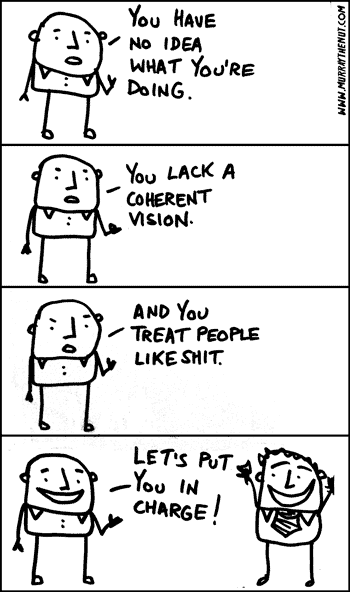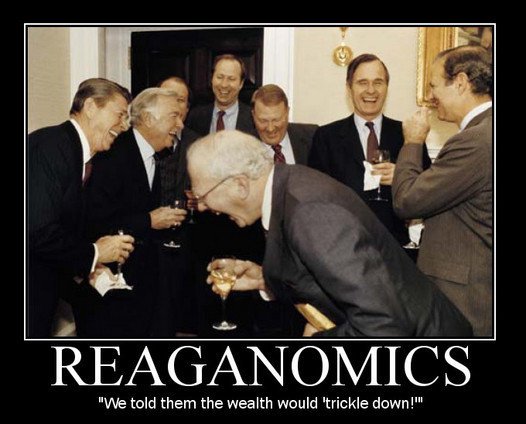Miscellaneous thoughts on politics, people, math, science and other cool (if sometimes frustrating) stuff from somewhere near my favorite coffee shop.
Saturday, December 25, 2010
Thanks, Paul
If this season isn't about finding hope, what is it about?
Deck Us All With Boston Charlie
 Deck us all with Boston Charlie,
Deck us all with Boston Charlie,Walla Walla, Wash., an' Kalamazoo!
Nora's freezin' on the trolley,
Swaller dollar cauliflower alley-garoo!
Don't we know archaic barrel
Lullaby Lilla Boy, Louisville Lou?
Trolley Molly don't love Harold,
Boola boola Pensacoola hullabaloo!
Bark us all bow-wows of folly,
Polly wolly cracker 'n' too-da-loo!
Donkey Bonny brays a carol,
Antelope Cantaloupe, 'lope with you!
Hunky Dory's pop is lolly gaggin' on the wagon,
Willy, folly go through!
Chollie's collie barks at Barrow,
Harum scarum five alarm bung-a-loo!
Dunk us all in bowls of barley,
Hinky dinky dink an' polly voo!
Chilly Filly's name is Chollie,
Chollie Filly's jolly chilly view halloo!
Bark us all bow-wows of folly,
Double-bubble, toyland trouble! Woof, woof, woof!
Tizzy seas on melon collie!
Dibble-dabble, scribble-scrabble! Goof, goof, goof!

Friday, December 24, 2010
Santa Visited Newberb, Oregon!
 Well, even if NORAD and Google can't spell, have a great one, folks.
Well, even if NORAD and Google can't spell, have a great one, folks.
Why I Spend More Time With The Guardian (UK) Than NYT
 Via Wil Wheaton's Tumblr, and I'm not sure if he compiled this graphic, or if he found it elsewhere. The Guardian's homepage is here, and while the homepage of most news sites is not necessarily the best place to start on a regular basis, it's the best place to start exploring. I read a LOT of different news sources, and The Guardian is my favorite by a long shot, even for US news and commentary.
Via Wil Wheaton's Tumblr, and I'm not sure if he compiled this graphic, or if he found it elsewhere. The Guardian's homepage is here, and while the homepage of most news sites is not necessarily the best place to start on a regular basis, it's the best place to start exploring. I read a LOT of different news sources, and The Guardian is my favorite by a long shot, even for US news and commentary.
A Song From My Childhood
Santibar
 When I checked in at NORAD's Santa Tracking page a few minutes ago, he was at Zanzibar, Tanzania. Happy Christmas Eve, all.
When I checked in at NORAD's Santa Tracking page a few minutes ago, he was at Zanzibar, Tanzania. Happy Christmas Eve, all.
Thursday, December 23, 2010
The Age of The Earth
With something like an entire planet, it gets a little more complicated.
There's a new geotweep, Geologic Time, who is planning to tweet our planet's history as it would occur over the course of time if its ~4.54 billion years were compressed into one calendar year. I signed up to follow the other day because it sounds like a fun exercise and because while, yes, I know a great deal about earth history, I expect there will be any number of facts and tidbits that are new to me.
So when Geologic Time tweeted earlier (in a piece that has now apparently been taken down) that the proto-earth was currently in the process of accretion- planetesimals and rocky material falling together to form the young planet- I tweeted back asking "So what defines when protoplanet becomes 'Earth?'" In other words (I meant) what was the moment, event, or datum of some kind, that geoscientists use to say, "Before this point, it was proto-earth; after this point it was earth." Because there has to be a starting point, right?
Well, the short answer appears to be, "No, not exactly." The accretion process was messy and hot. The proportion of radionuclides- which decay and release more heat- was much higher than today. So there are no datable rocks from our planet's earliest history, and thus nothing on our planet that can be dated. The oldest known rocks are about 4 billion years old, and the oldest known mineral grains are detrital zircons from the Jack Hills of Australia, at about 4.4 billion years. The latter value represents an absolute minimum age for the earth.
My assumption had been that there had been more work done with the lunar samples. I know a lot of work and analysis has been done with those over the last 25 years, and I haven't followed it very carefully. I was also quite aware that the precision of radiometric dating had improved a great deal during that interval. As it turns out though, the planetary midnight of 1/1 is still the same as it was when I was a student: the age of the material that created the earth. Meteorites. I've been reading a bit on this topic since it came up this morning, and I'm not going to go into great detail, but essentially, we have the lower bound of about 4.4 billion years and an upper bound of meteorite ages of about 4.55 billion years. The earth had to have formed between those two times.
Wikipedia did offer one bit of information that was new to me, though. "Nevertheless, ancient Archaean lead ores of galena have been used to date the formation of Earth as these represent the earliest formed lead-only minerals on the planet and record the earliest homogeneous lead-lead isotope systems on the planet. These have returned age dates of 4.54 billion years with a precision of as little as 1% margin for error." So there are two independent and consistent paths that get us to the currently accepted age: meteorites and Archaean galena. One particularly interesting inference that I'm tentatively drawing from all this is that the time from protoplanetary disk to fully accreted planets must have been quite short in the grand scheme of things- maybe ten million to a hundred million years, tops.
The two links included above are both to Wikipedia, but two other sites I found particularly informative were Talk Origins, which appears to be primarily to provide ammunition for those refuting young-earthers, and Palaeos.com, The Hadean Age. The latter provides a description and discussion of what happened when during the first eon of the planet's history, and why we think so. From a distance of billions of years, it makes for fascinating and exciting reading, but I'm glad I wasn't there for it. Both have references from as recently as 2007, so while they may not be utterly current, they have definitely helped me come more up to date than I was a few hours ago.
I'm Gonna Be SOOOOO Bad!
 This is indeed Bad Science... solar panels don't use "fuel" so to discuss their "fuel efficiency" is nonsensical. Make mine anthracite or jet.
This is indeed Bad Science... solar panels don't use "fuel" so to discuss their "fuel efficiency" is nonsensical. Make mine anthracite or jet. Anthracite
Anthracite Jet
Jet
Thorsday: Fenrir
 Yesterday's Big Picture consisted of photos from the solstice and accompanying lunar eclipse. The one above, though taken in Japan, reminded me of Fenrir: a snarling, enormous wolf, with a blood-red moon behind it.
Yesterday's Big Picture consisted of photos from the solstice and accompanying lunar eclipse. The one above, though taken in Japan, reminded me of Fenrir: a snarling, enormous wolf, with a blood-red moon behind it.
Wednesday, December 22, 2010
Bonus Wednesdays
 Evil Snow White, from EpicPonyz. I set this aside a week ago, and almost forgot it... no, it's not actually Wednesday, but the resemblance is uncanny, no? And the one below I came across earlier today, but after I had already posted the Wednesday Wednesday photo. So, bonus post!
Evil Snow White, from EpicPonyz. I set this aside a week ago, and almost forgot it... no, it's not actually Wednesday, but the resemblance is uncanny, no? And the one below I came across earlier today, but after I had already posted the Wednesday Wednesday photo. So, bonus post!see more Lol Celebs
Song For A Winter's Night
Tuesday, December 21, 2010
The War On Christmas
I recall being taught that one reason Washington attacked on Christmas was specifically because (English) American colonists didn't celebrate the holiday. The German Hessian mercenaries did, though, and so would be hung over and vulnerable when Washington and his army made their surprise attack. In other words, at the time of the Revolution Christmas was unAmerican.There is also some discussion of how our so-called "religious" holidays at this time of year are for the most part usurpations of previously-existing pagan holidays around the solstice, with their symbologies and traditions left largely intact, but with a new narrative superposed.
So again, axial tilt is the reason for the season, but whatever it is you care to celebrate during these shortest days of the year, it's all good as far as I'm concerned. Enjoy the season and the longer days to come.
Zappadan, The Final Day
Monday, December 20, 2010
150 Years Ago Today
A war, I'm afraid, that we're still fighting today.
Goings On In The Sky
Of course the other thing to watch for tonight is the lunar eclipse. Nat Geo is making a fuss over the fact it is the first to fall on the day of the solstice in 372 years. OregonLive has a nice article that gets the details for those who want to watch:
North and Central America should be able to view the entire show, which is expected to last 3 1/2 hours if skies are clear. Total eclipse begins at 11:41 p.m. PST Monday or 2:41 a.m. EST Tuesday. The totality phase -- when the moon is entirely inside Earth's shadow -- will last a little over an hour.Also, according to that article, OMSI is hosting a viewing party from 9:30 PM to 1:00 AM on the OMSI plaza. So if you're in the Portland area, I'm sure they'll have interpreters to help explain what you're seeing and why for the curious. And of course Bad Astronomer Phil Plait has a good write up, with a spectacular photo montage and a diagram showing how the phenomenon works.
However, a couple of days ago I remarked to someone that here on the west side of the Cascades, we are pretty much exempt from astronomy from the late fall to the early spring. About the only astronomical activity we could expect to witness (other than a slight brightening in the morning) is a catastrophic meteorite impact, and we're not scheduled for one of those anytime soon, so far as I've been informed. Which is fine by me. According to NOAA/NWS our forecast for tonight is "A 50 percent chance of showers. Mostly cloudy, with a low around 33." Cold and dreary... I'll step out a few times to see what I can see, but I won't be spending any major portion of the night outdoors. The clouds thin and break often enough that I'll probably get to see glimpses, but unlike the August 2007 lunar eclipse, this one isn't all that promising.
Sunday, December 19, 2010
Grammar Matters
People Don't Watch Fox News Because They're Stupid
Researchers found that Americans who paid more attention to the news were more likely to know about current events. But Americans who relied on Fox News were "significantly more likely than those who never watched it to believe":* most economists estimate the stimulus caused job losses (12 points more likely)
* most economists have estimated the health care law will worsen the deficit (31 points)
* the economy is getting worse (26 points)
* most scientists do not agree that climate change is occurring (30 points)
* the stimulus legislation did not include any tax cuts (14 points)
* their own income taxes have gone up (14 points)
* the auto bailout only occurred under Obama (13 points)
* when TARP came up for a vote most Republicans opposed it (12 points)
* and that it is not clear that Obama was born in the United States (31 points)
I read the earlier PIPA report, and found it awfully depressing. Just reading Benen's summary is about all I want to deal with this time around.
Sunday Funnies
 Skull Swap
Skull Swap Criggo
Criggo Criggo
Criggosee more Political Pictures
 Bits and Pieces
Bits and Piecessee more Very Demotivational
 The High Definite
The High Definitesee more Political Pictures
 BizarroBlog
BizarroBlog Bits and Pieces
Bits and Pieces Criggo
Criggosee more Hacked IRL - Truth in Sarcasm
see more Engrish
 The Daily What
The Daily What Sofa Pizza
Sofa Pizza Sober in a Nightclub
Sober in a Nightclubsee more Hacked IRL - Truth in Sarcasm
 Darius Whiteplume's Tumblr
Darius Whiteplume's Tumblr Darius Whiteplume's Tumblr
Darius Whiteplume's Tumblrsee more Historic LOL
see more WTF Pictures and WTF videos by Picture Is Unrelated
 Sober in a Nightclub
Sober in a Nightclubsee more Hacked IRL - Truth in Sarcasm
see more Lol Celebs
 Sober in a Nightclub
Sober in a Nightclub What Would Jack Do?
What Would Jack Do?













